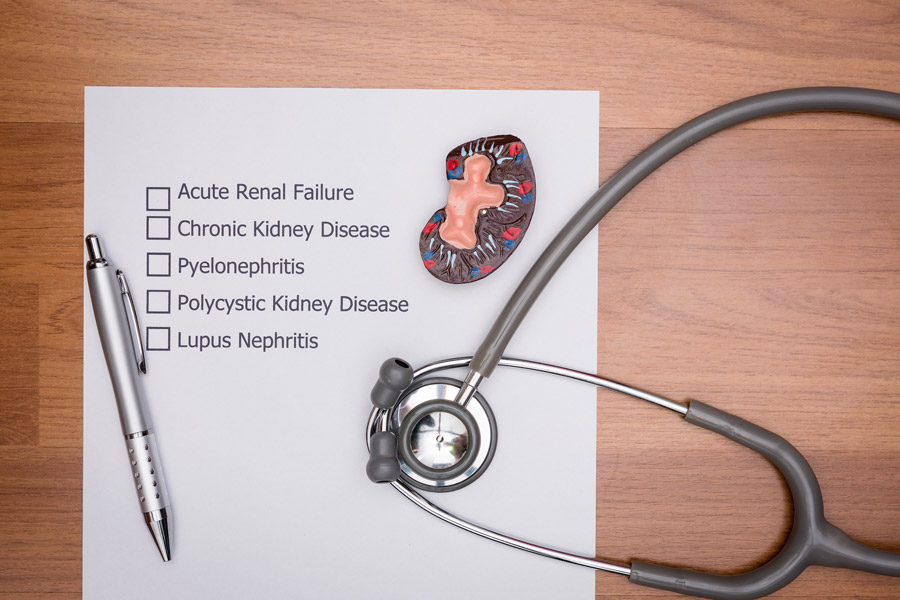Advertisment
Long term phase III data published in Arthritis & Rheumatology shows Lupkynis preserved kidney function up to three years in lupus nephritis patients with no new or unexpected adverse events – Aurinia Pharma

Aurinia Pharmaceuticals Inc. announced that full results from the Phase III, double-blind, placebo-controlled AURORA 2 extension study were published online in Arthritis & Rheumatology, the official peer-reviewed journal of the American College of Rheumatology.
As part of the AURORA Clinical Program, the AURORA 2 extension study assessed the long-term safety and tolerability of Lupkynis (voclosporin), compared with placebo, in combination with mycophenolate mofetil and low-dose glucocorticoids, to treat active lupus nephritis (LN) in adult patients who completed one year of treatment in the Phase III AURORA 1 clinical trial. Voclosporin was well tolerated with no new or worsening safety signals in the extension study. Clinical efficacy over three years of treatment was maintained, as observed by maintenance of urine protein creatinine ratio (UPCR) reductions, sustained complete renal response (CRR) and preserved kidney function, suggesting a positive benefit-risk profile for voclosporin in LN patients.
“Proteinuria, a defining part of the characterization of chronic kidney disease, often precedes a decline in kidney function and is associated with progression to kidney failure. Reductions in proteinuria are critical for slowing or stopping progression to end-stage kidney disease and improving long-term outcomes for LN patients. Notably, in this extension study, kidney preservation, sustained renal response, and reductions in steroid use were achieved with voclosporin. These findings demonstrate the critical importance of voclosporin in the management of LN to improve patient outcomes,” said lead study author Amit Saxena, MD, Division of Rheumatology, New York University Grossman School of Medicine.
Estimated glomerular filtration rate (eGFR), an important measurement of kidney function, remained stable throughout the extension study. The slope of the change in eGFR over the extension study period at month 36 demonstrated kidney function preservation in the voclosporin group (-0.2 mL/min/1.73m2), compared with a decline in function after one year in the control group (-5.4 mL/min/1.73m2). There was a significant increase in achievement of CRR (complete renal response) in LN patients treated with voclosporin, compared to patients in the control group, at nearly every time point in the AURORA Clinical Program. At month 12, CRR occurred in 52.6% of patients who received voclosporin, compared to 34.0% in the control group, largely driven by achieving a proteinuria reduction in UPCR to less than 0.5 mg/mg. At month 36, CRR occurred in 50.9% of patients who received voclosporin, compared to 39.0% of patients in the control group. CRR was defined as UPCR of ?0.5 mg/mg, eGFR ?60 ml/min/1.73 m2 or no confirmed decrease from pretreatment baseline in eGFR of greater than 20%, no rescue medication received for LN, and not receiving more than 10 mg of glucocorticoids for greater than 3 consecutive days or for greater than 7 days in total during the eight weeks prior to renal response assessment.
These results were achieved with most patients in both groups ( greater than 75%) maintaining glucocorticoid tapering throughout the study and receiving doses of less than 2.5 mg/day at the end of the extension study.
Of those who experienced adverse events (AEs) in the extension study, most were mild or moderate (86% in the voclosporin group vs. 81% in the control group). Across three years of treatment, infections were the most common type of AE (69.8% in the voclosporin group vs. 72.0% in the control group), with low rates of serious infections in both groups (12.9% in the voclosporin group vs. 17.0% in the control group). Most adverse events declined annually over the study period, with 86.1% of patients completing the two-year extension..
See-“Safety and efficacy of long-term voclosporin treatment for lupus nephritis in the Phase III AURORA 2 clinical trial”- Amit Saxena M.D., Ellen M. Ginzler M.D., Keisha Gibson M.D., Bancha Satirapoj M.D., Adolfina Elizabeth Zuta Santillán M.D., Olena Levchenko M.D et al. Arthritis & Rheumatology.First published: 19 July 2023.





